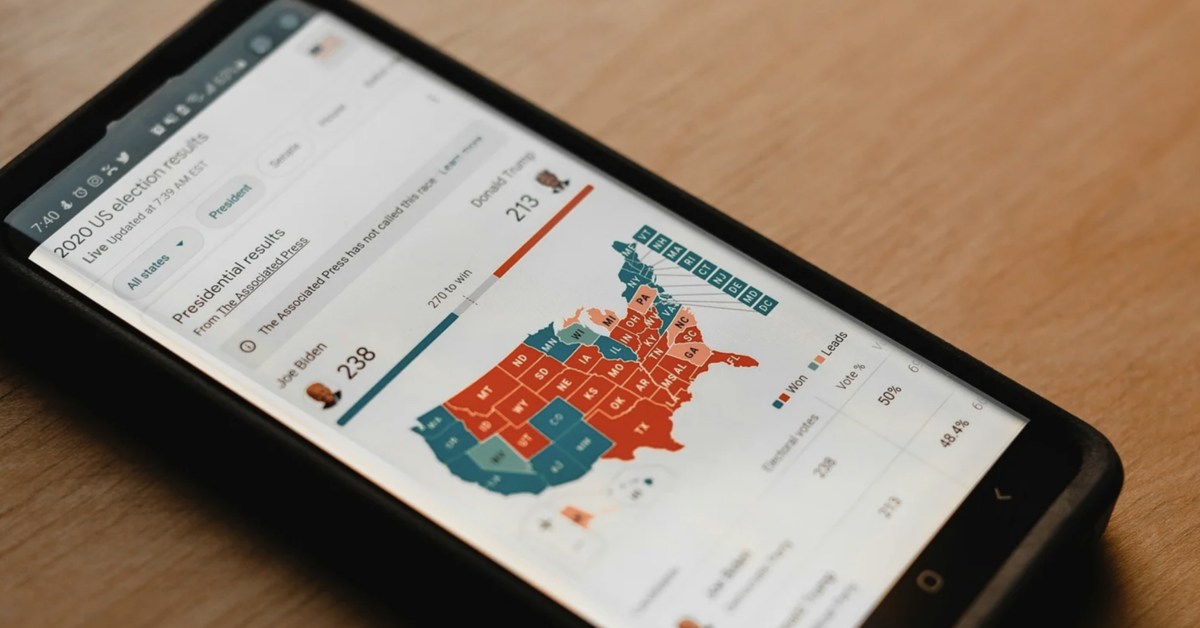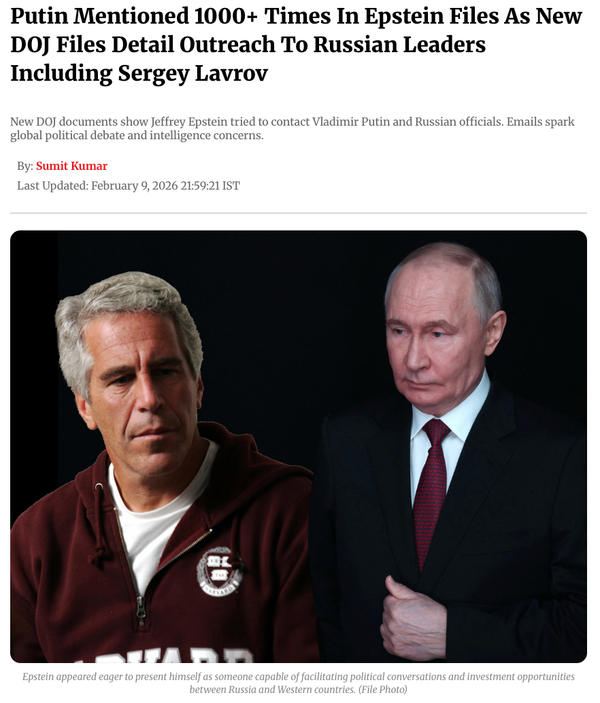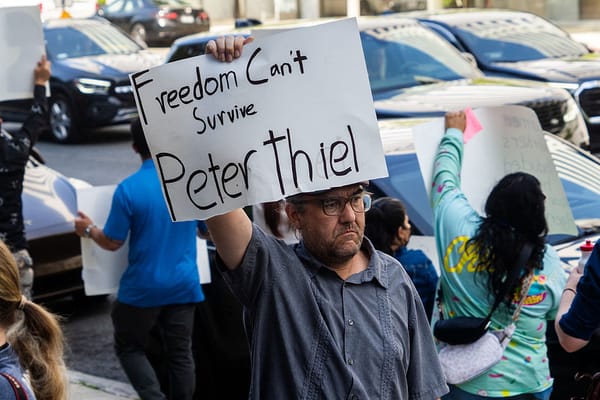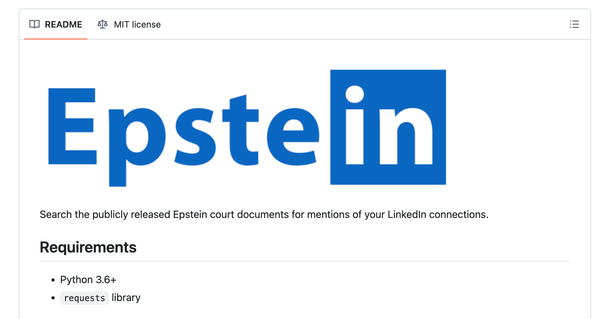USA2024: Watch the Tech Bros
Social media has become a tool for disinformation, online violence, abuse, and the degradation of public discourse. As we approach an election that should be shaped by facts and informed opinions, it feels impossible to trust what we read or watch.

We are just days away from one of the most consequential U.S. Presidential elections in recent history, which will have profound consequences not only for Americans but also for the world. Many of us who have worked in tech justice for the last decade feel a sense of doom, the kind that arises when everything you've fought against comes full circle, morphing into something even more sinister than the Moloch you feared.
The Citizens was founded to expose the deep harm that social media—its business model, unchecked power, and massive reach—inflicts on the very foundations of our democratic systems. Our democracies are dysfunctional, but in the past decade, social media has acted as a catalyst and accelerant in this crisis. Driven first by greed and more recently by specific agendas, social media has, for the better part of the last decade, become a tool for disinformation, online violence, abuse, and the degradation of public discourse.
As we approach an election that should be shaped by facts and informed opinions, it feels impossible to trust what we read or watch. We have crossed the Rubicon.
Just this week, we've seen reports of postal ballots being destroyed—if, indeed, that’s not another spin from Russian propaganda. Disinformation and deepfakes are actively being used to manipulate campaigns, and fake information about election offices, opening times, and overseas voting has muddled the waters.
Some of those stories are true. Others are part of a toxic, pervasive disinformation environment that is actively replacing the truth - making it impossible to know what’s going on. This is a global phenomenon, and dirty tricks have played out on both sides. But pro-Trump disinformation networks are a big chunk of that: as David Gilbert reports in this story for Wired, they have thrived in the last years, and keep giving.
The latest trend is election fraud conspiracies. It’s a parallel dimension with real-life repercussions, because it fuels paranoia, distrust, fear, hatred and, ultimately, determines who will be the next President of the United States.
The shocking truth of the January 6th insurrection has been so twisted by conspiracy theories that it’s almost become a fairy tale. When collective reckoning does not occur, similar violence is bound to happen again - on the same platform that allowed it to unfold four years ago.

And then we have the Big Actors. The platforms. The Tech Bros. Or, as Carole Cadwalladr calls them in this must-read, the Tech broligarchs.
Following the money reveals that major platforms have donated generously to individual politicians, parties, or campaigns—overwhelmingly favouring Democrats. As OpenSecrets shows, these companies often support the ruling party while remaining on favourable terms with the opposition—a practical strategy for corporate self-preservation. Let’s take Meta, the company we know well through our work with the Real Facebook Oversight Board and its project The Facebook Receipts.
This is Meta’s general profile on Open Secret. Kamala Harris’ campaign is the main recipient of donations from Meta-linked individuals, with the company also contributing directly. However, Meta has also spent far more on lobbying, particularly on efforts to stall major legislation like the Kids Online Safety Act (KOSA), which it has fought tooth and nail to dilute.
Or, to be more newsy, we could today focus on two very successful Tech Bros: Jeff Bezos and Elon Musk.
Let’s start with Bezos, who is probably particularly pissed off at being THE news for all the wrong reasons: buying a big newspaper, steering it towards a last-minute neutrality (which is a political statement in itself), damaging the business and, more importantly, further shredding what is left of the trust in the media. Yes, we are talking about the hot mess unleashed by the Washington Post board decision to break the tradition of endorsing one candidate over the other. The fallout has been huge. Over 250k readers have cancelled their subscriptions as a result. The tipping point has been reached: Jeff Bezos had to step in - in person - and explain the logic behind the paper leadership's decision. In doing so, he clarified broader important points on his opinion of the role of journalism in this mutated landscape.
Platformer’s Casey Netwon has an informed take on the whole saga. It’s a starting point for an urgent collective reckoning on how trust is built, and on what it means today. Meanwhile, a group of WaPo reporters have responded by publishing a damning expose of Bezos’ business ties to Washington, and on recent attempts by his executives to cultivate friendlier terms with Donald Trump.
The other anti-hero of this story could not be in a better position if Trump wins the election. Having endorsed him on X months ago, Elon Musk is Trump’s campaign's second bigger donor - read this thorough profile, still by OpenSecrets, and, well, a staunch supporter.
The massive elephant in the room is that Musk is a heavyweight even by Big Tech standards. His core business centers not on data, online advertising, or influence, but on defence contracts. In August 2023, Ronan Farrow’s seminal piece for The New Yorker, Elon Musk’s Shadow Rule, exposed the U.S. government’s reliance on Musk’s companies, particularly SpaceX. The power struggle between U.S. agencies attempting to rein in Musk’s influence is already intense, and, as The New York Times warns, a Trump presidency would only hand enormous strategic power to a single man with vast resources, unchecked influence, a concept of freedom that often bends democratic values, and a highly personal view of America’s interests. This leaves us to wonder if a Harris presidency will have the political capital and resolve to rein him in.




